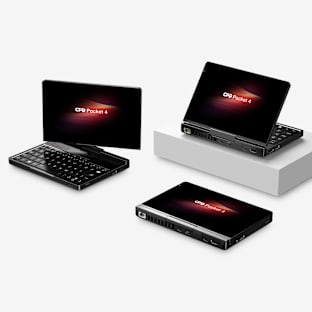Ebola data is everywhere except Africa.
And that's problematic, because it means that the people that know the least about Ebola are precisely the people who are the most vulnerable. So we built SMSanté, to ensure that this data gets to those who need it.
SMSepidemics is an SMS-based application that provides information on an epidemics such as Ebola to help affected communities to diagnose, prevent, treat themselves during an epidemic outbreak.
For our first pilot we are working with an NGO working in Guinea and thus our system will be called SMSanté (SMShealth) as French is the official language in Guinea.
So, what have we done about it?
With SMSanté anyone, anywhere in the world, can use text to access current data about Ebola, like this:
![]()
A user sends a message with the name of the city she wants information about and she receives a text (in French because our first pilot is in Guinea where French is the official language) telling her if the city she typed in has Ebola cases.
During our research phase and thanks to the local knowledge of There Is No Limit Foundation, we found that accessibility to information regarding the location of the disease was missing and thus impacted its spread as people travelled without being informed of potential risks. Add to this that rumors and fears regarding where the disease was spread too - sometimes faster than the virus itself. We also found that there was no information on the ground regarding availabilities of beds leading to people traveling long distance with sick relatives or neighbors to take them to a hospital, only to realize that there was no bed available.
This is why for our first pilot, we will share information on the location of the disease using WHO databases and information on the availabilities of beds in hospitals (first in 2 major hospitals in Conakry and then in the rest of the country). The information on the hospital beds would be provided by young people trained by a partner NGO and working with the hospital staff. We are now focusing on these two types of information but the beauty of our system is that it is flexible and easily adaptable. Therefore, we can provide more information as needs emerge.
We're piloting in Guinea, where text connectivity reaches 85% of the population, and statisticians predict that number will only rise within the next five years, making text the perfect medium to communicate this vital information to a public that desperately needs it. Specifically, we've prepared our pilot for two hospitals in Conakry, the capital:
Ignace Deen Hospital:
![]()
Donka Hospital:
![]()
Who are we?
![]()
SMSanté started at HackEbola, a hackathon held at the NYU
Polytechnic School of Engineering, with Arnav (a math major), and Pamela
(a PhD student in bioinformatics). Since then, we've grown to include Aditya and Bertha, two social entrepreneurs (one NYU alumni and a current Ph.D. student, both with backgrounds in engineering, technology management and business) and Anne-Laure, a Management professor with expertise in human-centered design and social innovation. While Arnav and Pamela came in with the idea and have the technical expertise, Aditya and Bertha bring in the business acumen and Anne-Laure reminds us of the importance of design and social context.
![]()
![]()
![]()
SMSanté was selected by OpenIDEO for this pilot, as one of 5 winning ideas chosen from a pool of 50 past victors of challenges (basically, we won the Quarter Quell). Our challenged was sponsored by the United States Agency for International Development, as part of a broader international effort to fight Ebola.
![]()
The There Is No Limit Foundation is an international nonprofit operating in Guinea since 2008, and they're leading our efforts on the ground. They're affiliated with the Fondation Conde Diene Kaba PROSMI, run by the Guinean First Lady, and with the West African Ebola Task Force, which is a network of nonprofits, governments, and other organizations working to fight Ebola. They met us at the Hackathon, and are responsible for ensuring that SMSanté is deployed smoothly to ground.
What's the money for?
We have three main types of cost:
-
Texting: Unfortunately, texts cost us 0.08c a pop, and while we're working to bring that down there will always be a per-text fee.
-
Staffing: We don't want to draw resources away from the ongoing Ebola effort, so we've identified a volunteer organization to help us find college graduates who need employment.
-
Backend: Here in the United States, we have to do things like
maintain a server, keep our data up to date, and host our application on
the web.
The SMSanté Story
Here's what's happened so far:
![]()
-
Boy meets Girl (at a hackathon). Our team started with two people, Arnav Sood and Pamela Wu, who bumped into each other at the HackEbola Hackathon held at the NYU Polytechnic School of Engineering. We walked in with nothing, and by the end of two days had successfully rigged an online Ebola database up to texts, in time for our live demo! Moreover, we were selected by the Greenhouse team to receive a prototyping grant to move our idea forward.
-
The Team Assembles: After the Hackathon, we pulled our team together -- drawing in Anne-Laure Fayard, a professor of management (at NYU School of Engineering and affiliated to the Business School) and Faculty Advisor for the NYU Greenhouse Innovation Space, with expertise in human-centered design, and Aissata Camara, a social entrepreneur, NYU alumni and one of the Founders of the There Is No Limit Foundation of Guinea. Aditya Brahmabhatt, a recent NYU graduate, a member of the NYU Design Tinkering club, and one of the hackathon organizers, joined in bringing in his interest for design thinking, social innovation (he has recently co-founded a social innovation start-up) and a business perspective. Our last team member is Bertha Jimenez, a Ph.D. student in Technology Management, studying innovation and entrepreneurship, and an entrepreneur herself (she's been involved in 2 other social ventures).
![]()
-
OpenIDEO: We hashed out our grant proposal for funding, and were notified by OpenIDEO that we won the online USAID/OpenIDEO Grand Challenge for Ebola! Thanks to OpenIDEO, we were offered a sponsorship by IndieGoGo to bring this page to you, connected with Maker's Academy as an app young coders can cut their teeth on, and generally transformed into something ready for deployment.
-
Deployment: After these steps, we assembled our cadre of Guinean partners, identified our pilot hospitals, shored up our technological backend (in other words, migrated from Pam's laptop to Google's servers) and prepared for the final green light!
Next Steps
Deployment! All the pieces are in place for us to go ahead; with your support, we can connect people on the ground with the data they deserve!














































